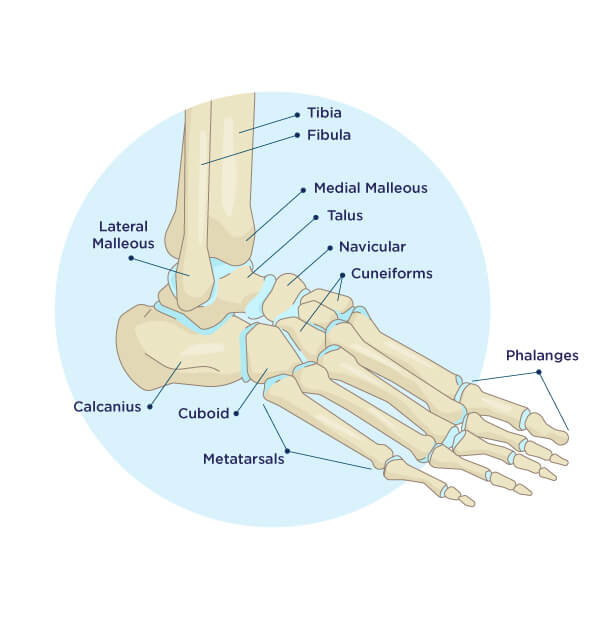01/16/2019
Most of us have sprained an ankle before, and are happy to use rest, ice and some ibuprofen to let it heal. But some ankle injuries are more severe or don’t heal properly and can require surgery.
Chronic Ankle Sprains or Instability
If you’ve sprained your ankle many times and it seems to give out more easily each time, that could be a sign of chronic ankle instability. This happens because each injury weakens or stretches your ankle ligaments. While bracing and physical therapy can help, sometimes surgery to reconstruct the torn ligaments can be preferable as a more permanent solution. Athletes especially prefer to avoid nagging ankle problems over several years.
Ankle Fractures
The ankle joint is made up of several bones: the tibia (larger lower leg bone), fibula (thinner lower leg bone), and talus. Because these bones all have different responsibilities when it comes to weight-bearing and the mechanical function of the joint, the exact location of the fracture needs to carefully be examined. The treatment and outcomes of ankle fractures can vary widely due to the variation seen in these injuries. The most important thing is to make sure the joint is stable as soon as possible, and then monitor the fractures with repeated X-rays as they heal. Occasionally, the joint may not stabilize and surgery may be required.

Achilles Injuries
The Achilles tendon connects your calf muscle to your heel bone. Its function is to provide power by pushing your foot downward and pushing up onto your toes. There are many types of Achilles injuries that can occur. These include ruptures, or tears, as well as acute or chronic tendonitis. Many of these injuries are initially treated without surgery by utilizing rest, ice, medications, physical therapy, orthotics, injections or other interventions. If this fails or the injury does not respond, then surgery may be required. It is important to have these injuries evaluated early on so that no time is wasted getting to the right treatment plan.
At OrthoNebraska, our physicians believe taking each patient’s needs into account is important when designing a treatment plan. Whether you are concerned about surgery or just want a proper diagnosis, please feel free to call (402) 609-3000 for an appointment.


